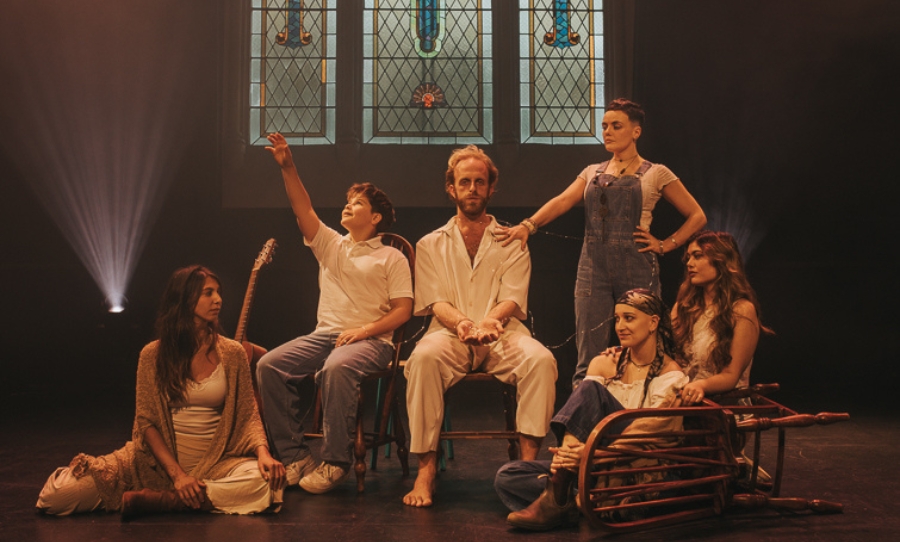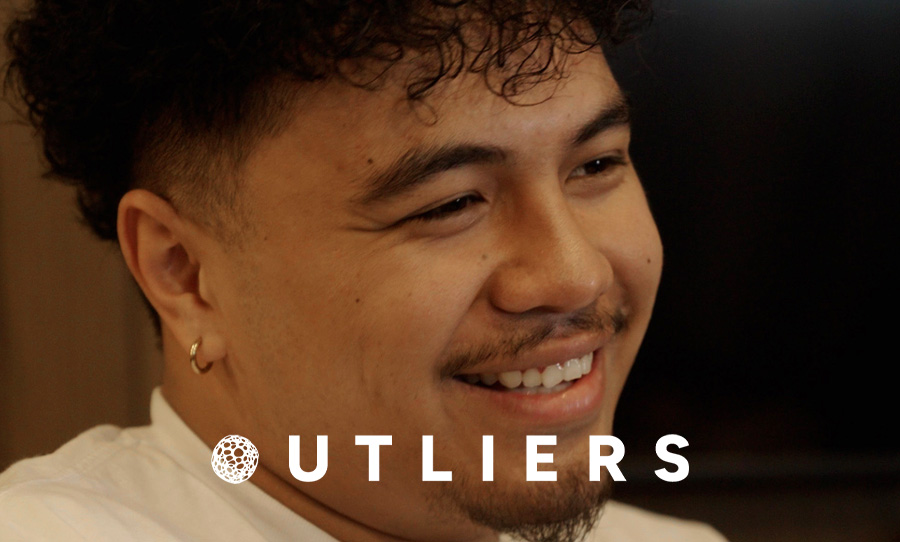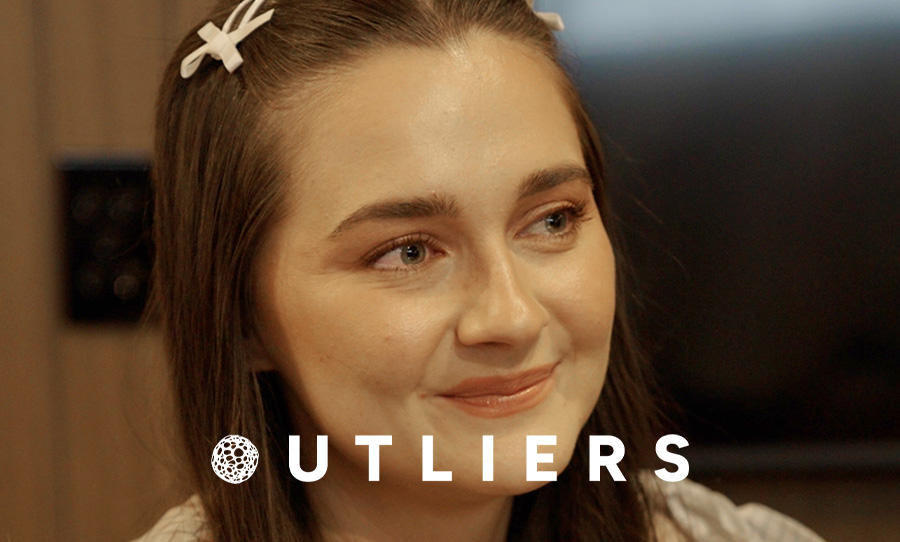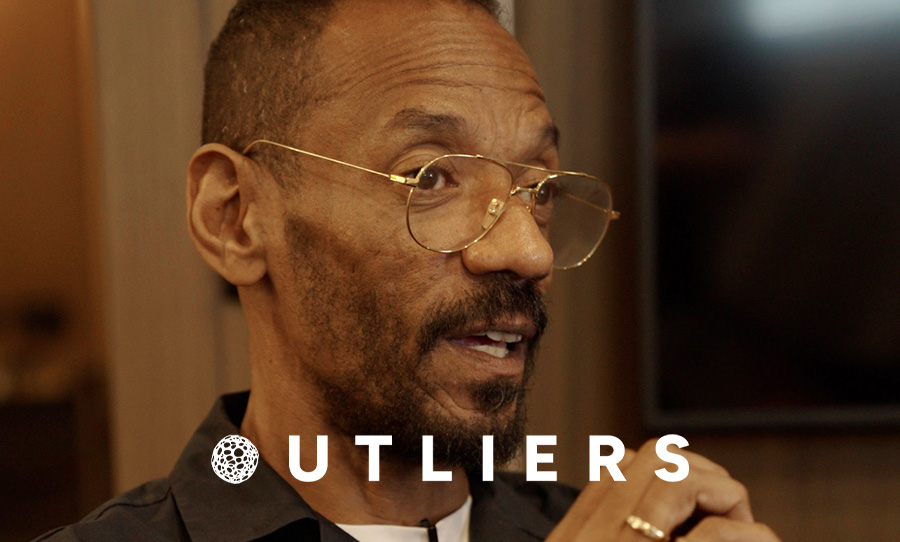“in the end, the whole story was about being ready to be loved, to give love, and to make love”
Ari Jacob’s latest album (and upcoming musical) ‘Son Called Moon’ is a beautiful exploration of the complexities of love, sexuality and religion.
The Naarm/Melbourne based singer-songwriter released the album earlier this year as a personal project with a distinct and palpable maturity.

Almost hypnotic, Jacob’s melodies are soothing to the heart and soul – a translation of the inner peace he has found through meditation.
A story of the relationship between man and god and mother and son, ‘Son Called Moon’ is a beautiful and vulnerable extension of Jacob’s own experiences with sexuality and religion.
In even more exciting news, you’ll be able to catch ‘Son Called Moon’ as a musical breathing new life into the album on Sunday, August 25th, Melbourne.
We caught up with Jacob’s to chat about what ‘Son Called Moon’ represents and fulfilling his lifelong dream of creating an original musical.
Scroll down to read the full interview with Ari Jacob, and listen to this truly beautiful album below.
HAPPY: What are you up to today?
JACOB: My girlfriend and I woke up early today, before her son woke up, which is unusual. I managed to shower and meditate before he called for us. Then we read him a story in bed and made pancakes for breakfast, took him to school, and now we’re sitting at a cafe getting started on this week’s tasks.
Monday is usually a sort of admin day for getting my head around the week and taking care of what didn’t happen last week.
HAPPY: Tell us a little about where you live, what do you love about it?
JACOB: I just moved into my girlfriend’s place this weekend after 9 months of being together. She lives with her son in a beautiful rental in Elsternwick, Melbourne, in an old house with heaps of character.
It’s a big transition living with a partner and a 4 year old! But i’m really enjoying the togetherness, cuddles in the morning and laughs before bed.
Kids have this incredible way of making us present and giving us energy we didn’t think we had.
View this post on Instagram
HAPPY: Your project ‘Son Called Moon’ is a conceptual journey exploring identity, freedom, and desire. Can you walk us through the inspiration behind this themes?
JACOB: I think these were the major themes of my life the last 10 years.
It’s funny because now I feel like i’m at the dawn of a new phase of life with very different themes – responsibility, balance, joyfulness, resilience.
Everything up until now has been very much about freedom, identity and desire.
I think I felt very limited, constricted and restrained as a teenager.
I was on a confusing journey with sexuality and with my religious identity as a Jewish man. I had hidden myself under many layers of shame and pain, buried myself under the chips on my shoulder.
When I moved to Israel at the age of 22, it felt like I was bursting at the seams, searching desperately for any kind of wisdom, experience, or relationship that would open me up, that would make me feel liberated, seen, loved. validated.
Son Called Moon became this pure and mystical artistic space in which I was processing this spiritual journey, unpacking my own mental and emotional scaffolding, and ultimately writing my own story, in the way that I wanted it to unfold.
HAPPY: You adopt the persona of the moon and chart your relationship with the sun. How did you develop this narrative, and what does it represent for you?
JACOB: The original seed of the story was about a guru and a disciple who struggle for power, for intimacy, and ultimately, seek unity and oneness.
The idea was a story of a very unique relationship between two mystical beings who, in the end, discover that they are two halves of the same soul.
Ultimately, the story settled in a cleaner version of two beings, Moon and Sun, whose relationship tells the story of the journey from manipulation and control, to partnership and vulnerability.
This represents many things for me – it is the journey of a man’s love for his mother transmuting into love for a feminine partner.
And on a larger scale, it is the story of the love between man and God, evolving from an archaic dynamic of dogma and commandment to a romantic, erotic, deep and playful love.
HAPPY: You worked on ‘Son Called Moon’ for six years. Can you share some insights into your creative process and how the project evolved over time?
JACOB: Working on SCM was like peeling away at thin thin layers of a precious stone which only reveal themselves one at a time.
Sometimes it felt like I was creating it but often it felt like SCM was creating me.
I would have epiphanies about the show which would then inform revelations about my own life. I would write songs for characters without much thought and then years later I would rediscover the song and it would speak to me and my life on such a deep level.
When it came to bringing the show to the stage it was like weaving together the final threads of the tapestry.
I would dive back into the archives to find random recordings, notes on my phone, videos of me playing piano, and these gems would become the depth and breadth of the SCM experience, as I would use them to fill in all the gaps that I needed to make the show feel complete.
HAPPY: You collaborated with your sister Tali Wenig and other artists on the project. How did these collaborations shape the final product?
JACOB: The collaborations with my grandmother Vivienne and my sister Tali became iconic elements of SCM. With both of them I only had one recording session to capture their voices reading my texts.
These sessions were meaningful and exciting and beautiful but the real magic happened as I heard those recordings again and again, in the mixing process, in the rehearsal process, in the performances.
They both came to represent very specific voices within myself which were guiding lights on my spiritual journey and to my creative process.
HAPPY: Your sound blends elements of folk, acoustic, and poetic lyrics. Who are some of your biggest musical influences, and how do they impact your style?
JACOB: The most significant is arguably Jason Robert Brown, an NYC based contemporary musical theatre composer.
I saw a rendition of his musical Songs for a New World at Chapel off Chapel in 2007 when I was 13. This is the same room where SCM premiered in June.
Other super notable more pop/folk musical influences were John Mayer, Josh Pyke, Lior, Maro, Jacob Collier, Jonatha Brooke, Duncan Sheik and Bon Iver.
HAPPY: Your lyrics are incredibly vulnerable and authentic. Can you talk about the importance of sharing your personal story through music?
JACOB: I don’t know if the importance for me is about sharing the personal story but rather finding a way to make the personal universal. I have quite an aversion to sort of “dear diary” songs because I find them self indulgent and not genuinely generous to the listener.
I think many of my older songs were like this. With SCM I worked very hard to tell a very personal story but to craft it in such a way that it could carry everybody else’s stories in them.
I think the personal narrative is important but the process of alchemising that close and intimate feeling into something true on a deeper universal level, that is where the artistic magic happens for me.
HAPPY: ‘Son Called Moon’ was adapted into a musical that ran in Melbourne. What was that experience like, and are there plans for future theatrical adaptations?
JACOB: It was an absolute dream come true!
We had an all star team of some of my favourite Australian creatives: Simon Starr who produced the album and played bass in the show, James Cutler the Director, whose work I have seen more than any other director in the world and who was the perfect partner for this piece, Yakira Abraham who was my 9th grade choreographer did the movement direction for SCM – she also happens to be my girlfriend.
And of course the team of Israeli creatives who came to be a part of this production, who were very much the life-force of SCM during it’s formative years in Tel Aviv.
We sold over 700 tickets (about 75% capacity) and had really exciting and interesting reviews.
We have had interest in another season of SCM in Sydney next year, and in the meantime, we are having an intimate acoustic show of the SCM songs with a Q&A situation with the crowd, hoping to finally answer some of the many questions we have received since the show.
View this post on Instagram
HAPPY: The project explores themes of sexuality and religion. Can you share some insights into your personal journey and how it informed the music?
JACOB: In 2016, the first person who I ever told about my struggles and confusion with my sexuality was a teacher I had at the time.
They told me about an ancient meditation practice which they had been practising and teaching for many years. They advised me not to “come out”, but rather, to take up this practice and see where it leads me.
This was the first time that I had been exposed to ideas in Eastern philosophy, and I was immediately swept up.
I took this mission very seriously. After only a few months of intensive practice my mind was clearer, my body had changed. It was a drastic transformation that everybody in my life could see and feel.
I moved to Israel in 2017 and switched over to a yoga practice, found a new guru and enveloped myself in yogic texts and Buddhist and Hindu philosophy.
It felt like every day my worldview would collapse and reconstruct itself. I started to see the material world as an illusion, veiling the true spiritual reality underneath it. I became quieter, more solitary, and cynical about the material pursuits of people around me.
Two years after that first conversation with my teacher, I told my friends and family about what I had been going through. It wasn’t a confession of identity, but rather a letting them into my heart.
Something deep in my consciousness had finally understood that the path to enlightenment was in accepting things as they are, not contorting them to become something else.
This long process of internal conflict and resolution became the philosophical fabric and narrative arc of Son Called Moon.
A story about a passionate and wide-eyed but deeply wounded soul, who felt that he needed an external light of wisdom to heal him, only to discover that he had been both the guru and disciple within himself.
View this post on Instagram
When Covid arrived in 2020, I found myself hit with another wave of spiritual inspiration, in an awakening to the God of my people, and the divinity of our holy scripture, the Torah. It was this journey which would enrich and expand Moon’s story in ways I couldn’t have imagined.
At the same time, this period caused all my questions and doubts about sexual identity to resurface. I isolated myself once again, I left the big city and moved to a small village outside Jerusalem. Within a few months of moving to this 250 year-old house in the forest, something started to shift in me, again.
The noise in my head started to dissipate, and I could see clearly that all spiritual traditions were aiming at the same thing. One God, for all of humanity, with endless love and compassion for all living things.
On an artistic level, the most stifling hurdles to writing SCM came from a lack of clarity as to how the story would end. Would Moon choose the darkness or the light?
View this post on Instagram
There had to be a middle-of-the-road ending which contained the true resolution of this narrative.
It was only in the last year that I understood the fateful bond of Moon and Sun, as I felt the aches of birthing a new, more liberated version of myself into existence.
And then I fell in love for the first time, for real. With a woman. There was nothing complicated or confusing about it.
Because in the end, the whole story was about being ready to be loved, to give love, to make love and create new life through the love that we make. It’s about feeling close to God, and wanting God to love us as we are.
View this post on Instagram
HAPPY: What’s next for Ari Jacob, and are there any upcoming projects or releases that you’re excited about?
JACOB: I’m running a songwriting course over August and September, for a group of 10 singer-songwriters who are looking to deepen and expand their craft. It will end with a concert to showcase what we worked on.
I’m absolutely loving preparing for this, finally curating everything I’ve learnt from the last 20 years of making art to give people tools and ideas to develop their songwriting. I’ll also be releasing a couple of SCM bonus tracks, and I have a brand new record ready to go, though I’m unsure when it will be released and what the plan is with that.
Also planning on recording an instrumental piano album later this month, inspired by one of my favourite composers Luke Howard.
View this post on Instagram
HAPPY: What makes you happy?
JACOB: Yoga
Yoghurt
Kissing with tongue
Sabbath
Sunshine
Songs



